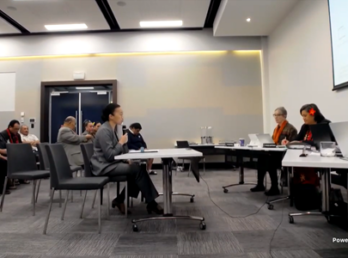What are a Child’s ‘Welfare and Best Interests’ in the Family Court? articles
Date
20 Jun 2023
Related Expertise
If you are involved in a parenting dispute in the Family Court, you may have heard the term “welfare and best interests of the children.” By law, a child’s welfare and best interests (in his or her particular circumstances) need to be the paramount consideration in any proceedings dealing with the care or guardianship of children.[1]
Practically this means that when making a decision, the judge must not place the needs or wishes of either parent over that of the child. That is not to say that your needs will not be considered at all. They will – but they must be framed in light of how your wishes or proposals will promote the interests of your child.
The wide scope of this requirement means that it can be hard for parents or guardians to predict the outcome of any Family Court proceedings they are involved in, or what kinds of parenting proposals are likely to be approved by the Court.
The starting point is section 5 of the Care of Children Act 2004, which sets out the principles relating to a child’s welfare and best interests. They are:
- A child’s safety must be protected,
- A child’s care, development and upbringing should be the primary responsibility of his or her parents and guardians,
- A child’s care should be facilitated by ongoing consultation and co-operation between his/her parents or guardians,
- A child should have continuity of care,
- A child should have a relationship with both or his or her parents, and a relationship with each parent’s family group,
- A child’s identity (including culture, language and religion) should be preserved and strengthened.[2]
These principles apply whether the dispute relates to day-to-day care (how much time a child spends with each parent) or guardianship decisions (such as whether a child can relocate).
Notice there is a strong focus in these principles on a child’s right to have an ongoing relationship with and parenting input from both parents. If you are involved in childcare proceedings or considering filing proceedings, it is important to keep in mind that the Court will be hesitant to reduce or limit a child’s contact with a parent unless it is found that there are safety issues.
The Family Court does however take a broad approach when a child’s safety is potentially at risk. Under the Act, a child must be protected from “all forms” of violence. This means not only protection from being a victim of violence, but from witnessing physical, sexual or psychological abuse of the other parent. Safety concerns will also be raised where there are allegations of drug use or excessive alcohol consumption by either parent, or where a parent’s mental health hinders their ability to look after a child.
[1] Care of Children Act 2004, s 4
[2] Care of Children Act 2004, s 5
The principles under the Care of Children Act 2004 also promote the idea that both parents have a responsibility for jointly making guardianship decisions about their children.[3] For example, if you are looking to relocate closer to work or family, or change the school your child attends, you will need to inform the other parent and allow them to be part of the decision-making process.
Sometimes, parents can find it difficult navigating what is in the welfare and best interests of their children when they are also processing the end of their relationship with the other parent. This can impact how people view childcare and what is in the best interest of their child.
As lawyers, we unfortunately see instances where children have been included in parental conflict and have aligned with a parent or are resisting contact with the other parent because of the acrimonious dynamic between the separated parties. We also see parents who are not attuned to their children’s needs and focus on their ‘rights’ to a child, rather than the responsibilities that comes with being a parent to a child.
If you have reached an impasse on a parenting issue and want guidance, get in contact with Stace Hammond’s Family Law Team at: advice@shlaw.co.nz.
Claudia Russell works alongside Aroha Fletcher and Kesia Denhardt in Stace Hammond’s Family Law team. She is a member of the New Zealand Law Society Family Law Section and Auckland Women Lawyers’ Association. She provides advice and assistance on matters relating to parenting disputes, contracting out and separation agreements, issues relating to family violence, and paternity concerns.
Contact her at: claudiar@shlaw.co.nz
Phone: 09 200 1126
[3] Relocation Law in New Zealand: Care of Children Act 2004 — are we anti-relocation? — (2022) 10 NZFLJ 161, at 163.
Subscribe
Get insights sent direct to your email.





















